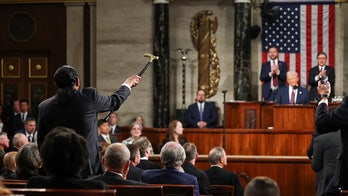WASHINGTON -- The Senate on Tuesday easily killed a move by conservative Republicans to temporarily ban senators from earmarking spending bills with back-home projects like roads, water projects and grants to local governments.
Fifteen Republicans joined with most Democrats in rejecting the moratorium on earmarks by a 68-29 vote.
It's a far different story in the House, where Republicans imposed an earmark ban on party members last week in a bid to demonstrate they are the party of reform in Washington. Democrats controlling the House also declared that earmarks can no longer go to for-profit companies whose executives and hired lobbyists too often return the favor with campaign contributions.
Fights over earmarks are routine and usually intensify in campaign years as lawmakers seek the political high ground with voters unhappy with out of control spending and the ways of Washington.
Still, since Democrats took over Congress, significant reforms have been put in place to reduce the number and cost of earmarks and make the process more open to the public.
This year's debate on earmarks follows a House Ethics Committee investigation of seven lawmakers suspected of taking campaign donations linked to companies that benefited from earmarks. The seven were absolved of wrongdoing, but the report illustrated the pay-to-play perceptions of some earmark seekers.
Defenders of earmarks say they represent but a small portion of the overall budget, are a legitimate way for lawmakers to exercise Congress' power of the purse, and that they know the needs of their states better than agency bureaucrats.
"We will have these decisions made by unelected bureaucrats in back rooms of agencies scattered all over this city," said Appropriations Committee Chairman Daniel Inouye, D-Hawaii. "I don't understand why those who are the most opposed to the policies of the current president are so intent on putting additional power into his hands and those who serve the executive branch."
Opponents say earmarks are often wasteful, invite corruption and are a way to win votes for big-spending legislation.
The ban attempt came on an amendment by Sen. Jim DeMint, R-S.C., to an unrelated air safety measure.
"The engine is what pulls the whole train and earmarks are what pull through a lot of spending and a lot of borrowing," DeMint said.












































